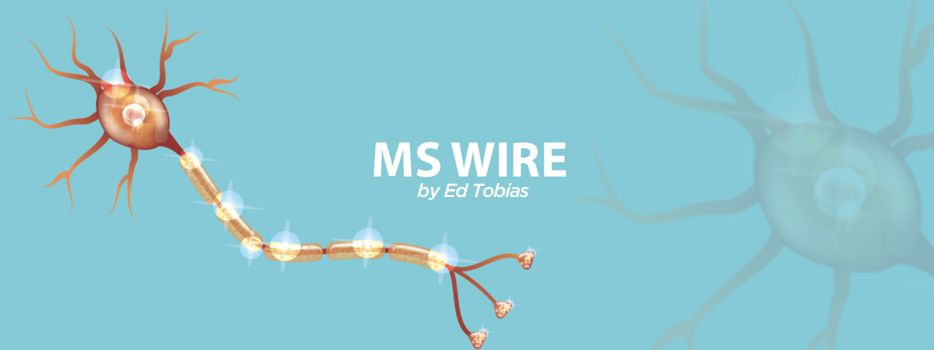MS News That Caught My Eye Last Week: COVID-19 Vaccines, Benign and Aggressive MS, Cog Fog, Diet
Written by |

All of the stories this week are from the ACTRIMS 2021 Forum, an MS research conference held virtually Feb. 25–27.
#ACTRIMS2021 – COVID-19 Vaccines Safe for MS Patients, Minimally Affected by DMTs
My wife and I received the second shot of the Moderna vaccine last week. (You can read more about it in my upcoming March 12 column.) I’m really pleased that the vaccines aren’t a problem for people with MS, according to the most recent data reported in this story. I hope you’ll get vaccinated, too, as soon as you’re able. Stop the Spread!
The currently approved COVID-19 vaccines pose little to no risk to people with multiple sclerosis (MS) and may be taken with disease-modifying therapies (DMTs), according to a recent analysis.
Amit Bar-Or, MD, presented the analysis in a talk, titled “Vaccination Responses in Setting of Different Types of MS DMTs,” at the virtual Americas Committee for Treatment and Research in Multiple Sclerosis (ACTRIMS) Forum 2021, held online Feb. 25-27. Bar-Or is a professor of neurology at the Perelman School of Medicine at the University of Pennsylvania, and chief of the multiple sclerosis division.
Click here to read the full story.
***
#ACTRIMS2021 – Benign Versus Aggressive MS – the Hunt for Clues
One of the great MS mysteries is what road our disease will choose. Will it take the highway of limited symptoms or will it be a ride along the downhill road of quickly increasing disability? This research hopes to find a method of determining the answer early in our MS ride, so that we and our healthcare team can better plan to handle our journey.
While researchers make progress in pinpointing markers of disease progression in multiple sclerosis (MS), identifying those that signal a benign MS disease course remains a significant challenge.
MS progression can vary widely between individuals, with some patients never acquiring significant disabilities — a condition often called benign MS — and others losing their ability to perform everyday living activities, which is referred to as aggressive MS. Knowing how to predict a person’s MS course is critical to quality care, as different therapeutic strategies will best benefit those most likely to do worse versus those most likely to do well.
Click here to read the full story.
***
#ACTRIMS2021 – Cognitive, Without Physical, Disability Growing Concern in MS
Many neurologists, including mine, like to use the phrase “time is brain” when talking about MS progression. It sums up the worry that MS may be attacking our brains even though it may be overlooking other parts of our bodies. “Time is brain” points to the need to include the possibility of brain atrophy in MS treatment plans. This study, in fact, says that it should be a priority for MS neurologists, and I agree.
Cognitive impairment without physical disability in multiple sclerosis (MS) may grow in prevalence as newer therapies better control patients’ motor symptoms.
But the “cognitive-predominant” MS that is likely to be increasingly evident will be a greater challenge to identify and treat, and should now be a clinical and research priority, an analysis study reports.
Click here to read the full story.
***
#ACTRIMS2021 – Dietary Restriction May Limit Severity of MS
Many people with MS swear by various diets. While the National Multiple Sclerosis Society says there’s no such thing as an MS diet, there have been studies and a lot of anecdotal evidence that dietary changes can help. Here’s a study that points to dietary fat as being a culprit in MS progression.
Dietary restriction can lessen the severity of multiple sclerosis (MS) by modulating levels of fat-related hormones, new research suggests.
The findings were shared at the Americas Committee for Treatment and Research in Multiple Sclerosis (ACTRIMS) Forum 2021, in the presentation “Weight, Obesity and Adipokines,” given by Laura Piccio, MD, PhD, a professor at Washington University School of Medicine in St. Louis, Missouri, and at the University of Sydney, Australia.
Click here to read the full story.
***
Note: Multiple Sclerosis News Today is strictly a news and information website about the disease. It does not provide medical advice, diagnosis, or treatment. This content is not intended to be a substitute for professional medical advice, diagnosis, or treatment. Always seek the advice of your physician or other qualified health provider with any questions you may have regarding a medical condition. Never disregard professional medical advice or delay in seeking it because of something you have read on this website. The opinions expressed in this column are not those of Multiple Sclerosis News Today or its parent company, Bionews, and are intended to spark discussion about issues pertaining to multiple sclerosis.



Leave a comment
Fill in the required fields to post. Your email address will not be published.